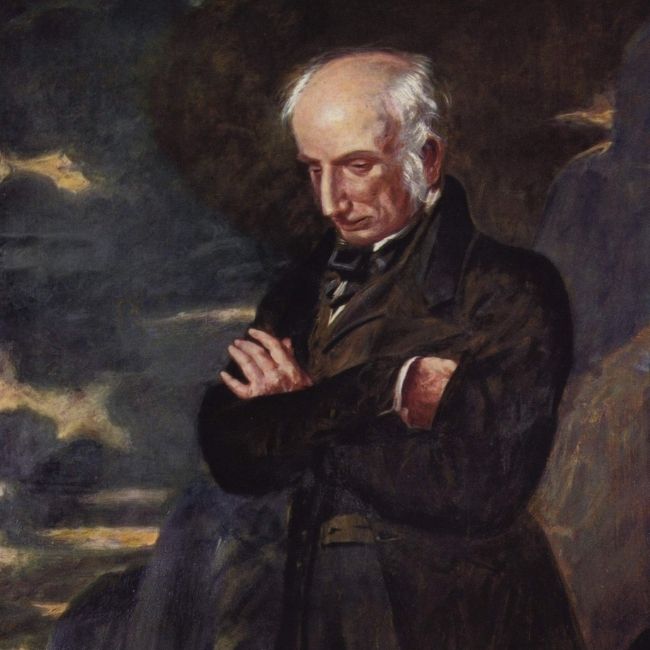
William Wordsworth: English Poet
The month of April is known as National Poetry Writing Month or NaPoWriMo. As we celebrate NaPoWriMo, let’s celebrate a poet each day, and understand their way of writing poetry.
William Wordsworth was one of the founders of the English Romantic movement. As a poet, he wrote about religion and philosophy. ‘Lyrical Ballads’, which William co-wrote with Samuel Taylor Coleridge, is one of his most well-known works. “The Prelude,” which is an epic poem on the “development of a poet’s mind,” was also written by William Wordsworth.
Early Life!
William Wordsworth went to a boarding school for orphaned boys, where he learned how to write. He was both scared and calmed by the English lakes’ natural beauty, which made him both happy and sad. Wordsworth moved to St. John’s College at Cambridge in 1787. He didn’t work hard at school and instead played games. When he came back to England three or four years after, it was the darkest time in his life. People who were left behind, beggars, children, vagrants, and other people who had been hurt by war were all things he thought about.
Legacy of William Wordsworth!
For Wordsworth, Coleridge’s cooperation with Wordsworth had two effects. To begin with, he was able to abandon the long poems he had been working on since his days at Cambridge. Second, it led to a series of daringly unique poems meant to challenge the conventions of classical poetry.
Most of the poems were written in a theatrical style in order to show the speaker’s personality. As a result of this philosophy and its associated poems, poetry has been given a new look and new terminology. This era, which lasted from 1797 until 1808, was a time of intensive creative activity for William Wordsworth. His most touching poems, such as “Lucy” and “Matthew,” were written during this time period. He created a new type of poetry characterised by a more sober and refined tone and language.
A stream is traced through the Lake District scenery in the Duddon poetry sequences (1820), while the three series of Ecclesiastical Sketches deepen thoughts on church history. Two volumes of Poems were released in 1807. ‘The Excursion’ in 1814 contained the sole finished sections of ‘The Recluse’.

Curious Times is a leading newspaper and website for kids. We publish daily global news aligned to your learning levels (also as per NEP 2020): Foundational, Preparatory (Primary), Middle and Senior. So, check out the News tab for this. We bring kids’ favourite Curious Times Weekly newspaper every weekend with top news, feature stories and kids’ contributions. Check out daily JokesPoke, Tongue Twisters, Word of the Day and Quote of the Day, kids need it all the time.
ME – My Expressions at Curious Times is your place to get your work published, building your quality digital footprint. And it is a good way to share your talent and skills with your friends, family, school, teachers and the world. Thus, as you will step into higher educational institutes your published content will showcase your strength.
Events, Quizzes and Competitions bring students from over 5,000 schools globally to participate in the 21st-Century themes. Here schools and students win certificates, prizes and recognition through these global events.
Sign-up for your school for FREE!
0 (Please login to give a Curious Clap to your friend.)
SignUp to Participate Now! Win Certifiates and Prizes.

Login/Signup